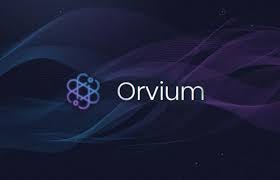
Research a driver of today’s knowledge economy
Research and development has long been recognized as one of the most vital aspects of modern industry. How much countries and their economies invest into this intangible asset of knowledge is consistently credited for bringing higher levels of productivity and efficiency.
Modern economists believe that this new economy: the production of knowledge, the distribution of it and eventual application of knowledge, are having direct influence on economies. Globally, major economies already witness how more than half of their GDPs today are a result of knowledge-intensive sectors such as education, information and communication.
Publish or perish — how scientific research is held to ransom by publishers
Scientific journals or scholarly publications have been the chief means to disseminate new research and information for centuries. Because they are vetted by fellow experts (peer reviewed), they maintain a high standard of quality that lends credibility to the new knowledge.
But the way this knowledge has been created and filtered out to the rest of the world, via a highly competitive field of academia, leaves much to be desired.
Any researcher in any discipline knows that reputation and career opportunities, and even the dissemination of new knowledge, are largely dependent by scientific journals and publications. Even educational institutions have come to accept that to attract more funding for their research, they must be able to publish the works of their leading academics.
These peer-reviewed journals are notoriously difficult to access, with costs of subscriptions running into the tens of thousands of dollars annually, depending on prestige and impact. A subscription to the organic chemistry journal Tetrahadron, for example, will set you back by more than $20,000.
Essentially, the academia is held to ransom by the monopolies of a few reputable publishers. In the UK, British universities fork out between GBP 4 to 6 million a year to publishers, simply for access to publication — a rate that has been steadily rising.
The Economist also reports that results of new research are increasingly held back by the incentives of getting published — as researchers gain reward from being published, and are willing to delay announcing results until they are published.
Worse still, because of the monopolies over publication, more and more scientific research is being increasingly retracted (the majority due to scientific misconduct, with more occurrences in the most prestigious journals.
PLoS Medicine editors have concluded that “science is currently rated by a process that is itself unscientific, subjective, and secretive”.
Decentralizing scientific research as a first step towards removing the shroud of secrecy
Our partner Orvium believes that it is high time to redress the flaws of an archaic system of scientific research. With the innovations of blockchain, they believe the can build an open source smart contract system that puts back control of research, validation, publication and even funding into the hands of researchers and consumers of knowledge.
Its combination of emerging technologies — distributed ledger for decentralized storage, blockchain and smart contracts for transparent execution of processes, cloud computing, data analysis and artificial intelligence — all aim to bring transparency and efficiency to the scientific process.
In the spirit of DAO, Orvium will employ what it calls Decentralizes Autonomous Journals (DAJs) — where knowledge consumers govern and contribute to journals on their own terms. Immediate benefits would be lowered costs, less bureaucracy, better organization and democratization of scientific dissemination. In their own words, “an unbiased platform of science”.
Authors can submit manuscripts for peer reviews, staking Orvium tokens (ORV) that can be redeemed by reviewers, ensuring an incentive model to guide peer reviews. After reviews are completed, manuscripts are published immediately, ensuring that precious new knowledge is immediately available and not delayed.
To learn more about Orvium, visit the official website and read the details of decentralized scientific research in its whitepaper. To join the community discussions, join the Orvium Telegram channel.
Curious about what AmaZix can do for you?
We’re always on the lookout for another exciting project to work on. If you’re working in the crypto space and planning an ICO, or just want help managing your communities, we’d love to hear from you.
Reach out to us on the following channels:
1. Telegram: https://t.me/amazix
2. Twitter: https://twitter.com/AmaZixOfficial
3. Website: http://www.amazix.com/
4. Facebook: https://www.facebook.com/AmaZixOfficial
5. Reddit: https://www.reddit.com/r/AmaZixOfficial/
By AmaZix Editorial on May 18, 2018.
Exported from Medium on January 30, 2020.
